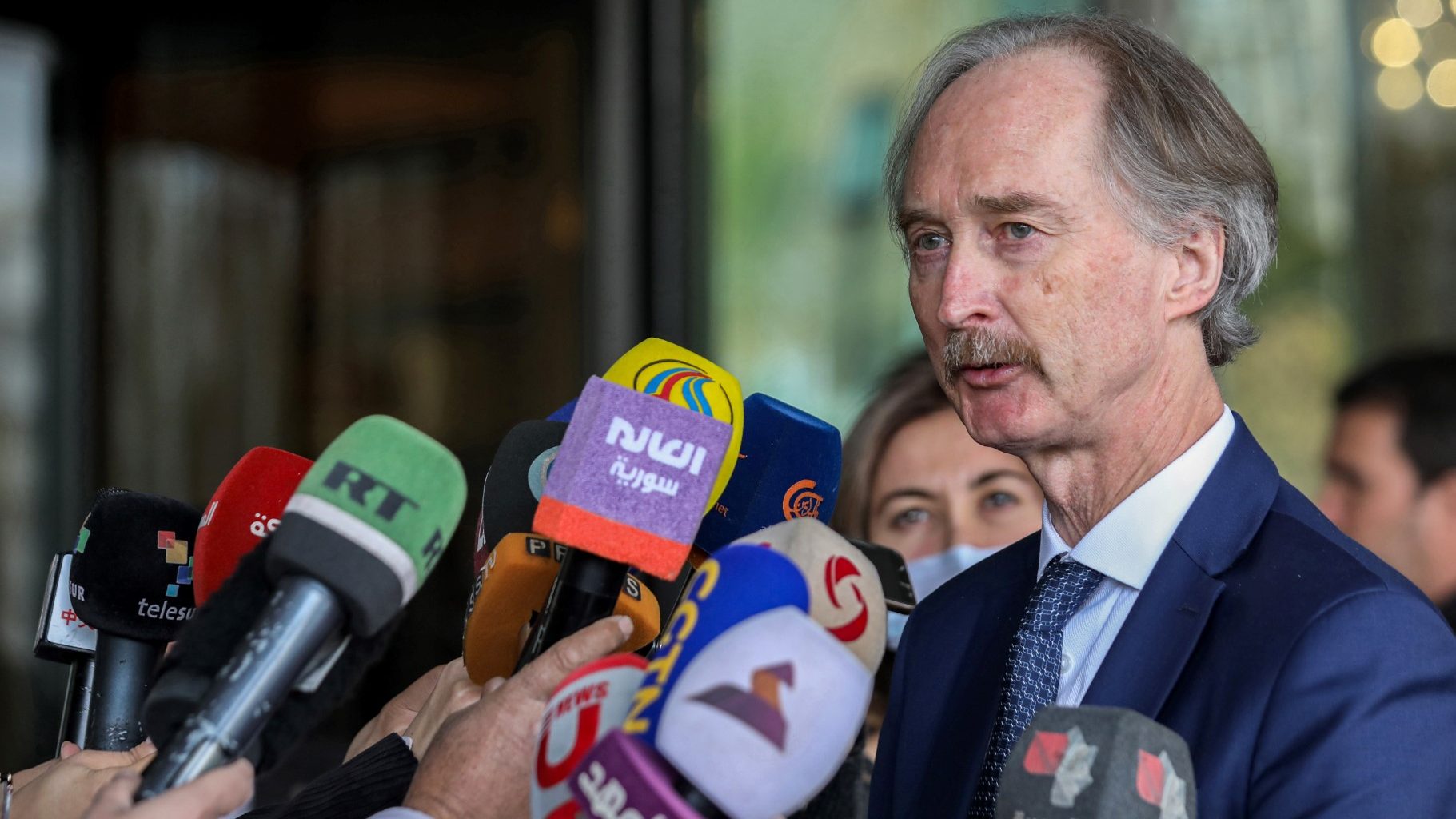Special Envoy for Syria Geir Pedersen of Norway has expressed concern over the impact of the Russian war against Ukraine on the diplomatic efforts to settle the war in Syria.
“Every month I draw your attention to the fact that Syrians across the country and those who are displaced are facing poverty and hunger at levels higher than at any point in the conflict,” Pedersen said in a briefing to the Security Council on Syria.
He emphasized that “the full implementation of Security Council resolution 2585 is important.”
“For my part, I remain steadfastly committed to implementing my mandate in Security Council resolution 2254 to convene the Syrian parties in the formal political process,” he added.
Read Also: Recap: What Does the Ukraine Invasion Mean for Syria?
“Militarily, front lines remain unshifted, but we still see all signs of an ongoing hot conflict. Any of a number of flashpoints could ignite a broader conflagration… Yet again, we have seen more violence across international borders – drone strikes in the north-east; Israeli strikes in the south and Damascus; and further security incidents on the Syrian-Jordanian border,” Pedersen stated.
“It is plain that there is a stalemate, that there is acute suffering, and that a political solution is the only way out. This requires a Syrian-led, Syrian-owned political process, which must be supported by constructive international diplomacy – however hard that is, and especially right now.”
Pedersen said he was “glad” to report setting a date for convening the 7th session of the Small Body of the Syrian-owned, Syrian-led, UN-facilitated Constitutional Committee in Geneva, on the 21st of March.
“It is important that the Small Body’s work continues – and in such a manner that it builds trust and confidence. The parties’ positions are substantively far apart and narrowing their differences will inevitably be an incremental process.”
He further added that “in line with the Terms of Reference and Core Rules of Procedure, what we do need is a sense of compromise and constructive engagement from all delegations.”
“For my part, I will continue to focus on engaging and convening the Syrian parties and consulting widely. We will convene a series of Constitutional Committee meetings in May and June, and we will continue rolling out a set of consultations on step-for-step within the wider issues in 2254 and on how we can make progress,” Pedersen went on to say.
He appreciated “the constructive ideas that have been shared to date. I look forward to continuing the consultations with those that I have not yet been able to consult, and to further rounds of engagement.”
“I am convinced that the overwhelming majority of the Syrian people desperately want this conflict to end, to see some basic improvements to their shattered lives and to live in safety and dignity,” Pedersen stated, adding that “They want to see progress on the file of detainees, abductees and missing persons, which keeps affecting the lives of so many families in every corner of Syria.”
He expressed concern that “the constructive international diplomacy required to push this may prove more difficult than it already was, against the backdrop of the military operations in Ukraine.”
For her part, Assistant Secretary-General for Humanitarian Affairs and Deputy Emergency Relief Coordinator Joyce Msuya said in a briefing that “more people are in need than any time since the start of the conflict. A total of 14.6 million people will depend on humanitarian assistance.
This is 9 percent more than last year and 32 percent more than the year before.”
The Syrian Observer has not verified the content of this story. Responsibility for the information and views set out in this article lies entirely with the author.


